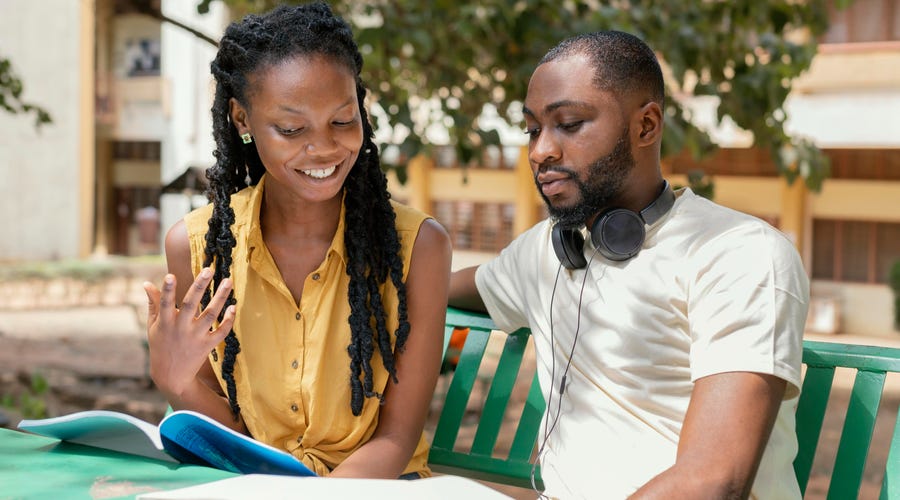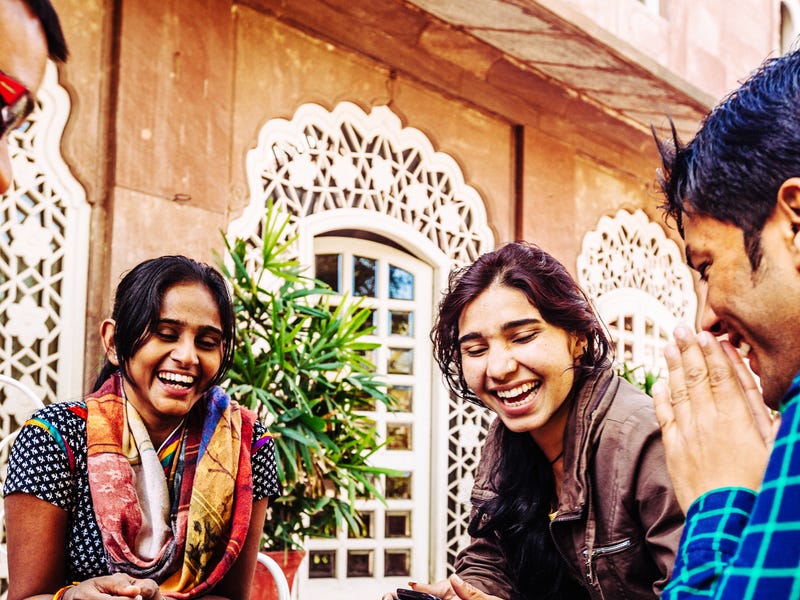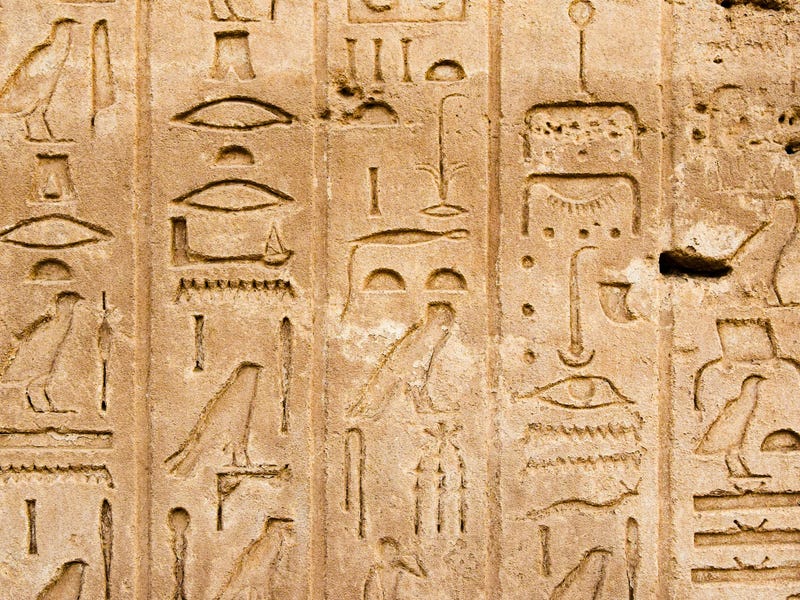
African languages: The top 70 most spoken languages in Africa
Author: Elinor Zucchet
Imagine a continent where every conversation opens a door to a different world, where languages reflect an incredible variety of cultures, histories, and traditions.
This article isn't just a list of languages — it's an invitation to find out what are the most spoken languages in Africa, and their cultural significance. You’ll also learn an expression or two along the way!
From the Berber tongues echoing through the mountains of Morocco to the Zulu clicks that resonate in South Africa, every language here carries the soul of its people.
Whether you're a linguistics enthusiast, a cultural explorer, or someone who loves learning about new places, embark on a linguistic safari and discover the 70 most spoken languages in Africa!
Disclaimer: While we used sources like Ethnologue and the CIA World Factbook, bear in mind that the numbers below are estimates that vary greatly from one source to another.

What are the most spoken languages in Africa?
1. Arabic
Total speakers: 150 million
Region: North Africa
Example phrase: "As-salamu alaykum" (Peace be upon you)
Arabic is the language most spoken in Africa — it’s the 6th most spoken language in the world — including several dialects such as Egyptian, Maghrebi, and Sudanese. It’s the liturgical language of Islam and holds cultural significance across North Africa, including Egypt, Sudan, Libya, Algeria, Morocco, and Tunisia. Arabic's influence extends beyond daily communication to literature, education, and media.
The Arabic writing system is a unique and widely used script, characterized by its right-to-left direction and cursive style. While primarily an abjad focusing on consonants, it uses diacritical marks to denote short vowels, giving it a rich and expressive quality. This script — in my opinion, absolutely beautiful — is not only functional but also a major aspect of cultural and artistic expression in the Arabic-speaking world.
If you’re up to a linguistic challenge, Arabic is one the hardest languages to learn for English speakers… but totally worth the effort!
2. French
Total speakers: 120 million
Region: West Africa, Central Africa, North Africa
Example phrase: "Bonjour" (Hello)
French is a significant language in Africa, serving as an official or second language in 21 African countries. Its influence extends across various sectors, making it a key player in government, education, and business. In countries like Côte d'Ivoire, Senegal, Mali, and the Democratic Republic of the Congo, French is not just an infamous memory of colonial history but a vital part of daily communication and administration. These nations use French to bridge diverse ethnic groups, facilitating smoother governance and fostering national unity.
In education, French serves as the primary medium of instruction in many schools and universities, while in business, it enhances trade and economic cooperation within the Francophone world and beyond. The widespread use of French in Africa underlines its role in connecting the continent to global networks and opportunities.
You can find out more about French speaking countries around the world in our article. And if you love French, don’t miss our French learning blog!
3. Swahili
Total speakers: 80 million
Region: East Africa
Example phrase: "Hakuna Matata" (No worries)
Who hasn’t heard “Hakuna Matata”? Swahili, the lingua franca of East Africa, is a Bantu language with significant Arabic influence. As the official language of Tanzania and Kenya, Swahili also enjoys widespread use in Uganda, the Democratic Republic of Congo, and other parts of East Africa. While it’s number 3 in our list, the number of speakers estimates range from 60 million to 200 million!
This language acts as a bridge, uniting diverse ethnic groups and facilitating trade, travel, and communication across the region. Swahili's role extends beyond mere communication; it’s inherent to cultural identity and cohesion in East Africa. Moreover, Swahili is gaining global recognition, with increasing interest in its study internationally due to its cultural and economic significance.
Finally, did you know that Swahili is one of the easiest languages to learn for English speakers?
4. Hausa
Total speakers: 70 million
Region: West Africa
Example phrase: "Sannu" (Hello)
Hausa is a Chadic language spoken widely in Nigeria and Niger, with prominent communities in Ghana, Cameroon, and Sudan. Serving as a lingua franca in West Africa, it plays a key role in trade, media, and education.
Hausa's rich oral literature and proverbs reflect the cultural heritage of its speakers, making it an essential element of West African cultural expression and daily life. The language is also integral to the region's social dynamics, often used in political discourse and traditional ceremonies. Hausa has also seen an expansion into digital media, further broadening its reach and influence.
5. Amharic
Total speakers: 57 million
Region: Ethiopia
Example phrase: "Selam" (Peace/Hello)
Amharic is the official language of Ethiopia and belongs to the Semitic branch of the Afro-Asiatic language family. Known for its unique Ge'ez script and deep historical roots, Amharic offers a fascinating study for scholars and linguists alike. It plays a crucial role in Ethiopian government, education, and media, reflecting the country's national identity.
Amharic literature is rich and varied, with a long tradition of poetry, religious texts, and modern novels. Furthermore, the language's influence extends to diaspora communities, preserving cultural ties among Ethiopians worldwide.
6. Yoruba
Total speakers: 45 million
Region: Nigeria, Benin, Togo
Example phrase: "Bawo ni" (How are you?)
Yoruba, a language of the Niger-Congo family, is mostly spoken in southwestern Nigeria. It's known for its tonal quality and complex grammar, which are interesting challenges for language learners. Yoruba culture is rich in mythology, music, and art, making the language a gateway to understanding one of Africa's most fascinating traditions.
The language is also central to the practice of Yoruba religion and spirituality, which includes rituals and oral traditions passed down through generations. Additionally, Yoruba has a major presence in diaspora communities, particularly in Brazil, Cuba, and the United States, where it continues to influence cultural practices.
7. Oromo
Total speakers: 40 million
Region: Ethiopia, Kenya
Example phrase: "Akkam" (How are you?)
Oromo is the most widely spoken Cushitic language, primarily used by the Oromo people in Ethiopia and Kenya. It has a lot of significance in the cultural and social identity of the Oromo people, who have a fascinating history and vibrant traditions. The language is also a medium for education and media within the Oromo community, helping to preserve and promote their cultural heritage.
Oromo literature, though historically oral, is experiencing a revival with increasing written works and publications. Furthermore, the language is instrumental in political movements and social advocacy, highlighting its significance beyond daily communication.
8. Igbo
Total speakers: 40 million
Region: Nigeria
Example phrase: "Kedu" (How are you?)
Igbo is one of Nigeria's major languages, spoken primarily in the southeastern region. It belongs to the Niger-Congo family and features a rich oral tradition, including folktales, proverbs, and songs. Igbo beautiful culture emphasizes communal living, respect, and spirituality, with language playing a central role in these practices.
Igbo is also used in education, media, and literature, contributing to its vitality and resilience. Moreover, the language is celebrated during cultural festivals and ceremonies, which serve to strengthen communal bonds and preserve traditional customs.
9. Portuguese
Total speakers: 30 million in Africa
Region: Angola, Mozambique, Guinea-Bissau
Example phrase: "Olá" (Hello)
Portuguese is the official language of several African countries, including Angola, Mozambique, Guinea-Bissau, Cape Verde, and São Tomé and Príncipe. It’s used in government, media, and education, serving as a key tool for administration and international diplomacy.
The Lusophone African countries have a rich cultural heritage influenced by Portuguese colonization, very vivid in their music, cuisine, and architecture. Portuguese also facilitates regional integration and cooperation among these countries, promoting economic and cultural exchange. Besides, the language's presence in African literature and media continues to grow, reflecting the dynamic nature of its use in modern society.
10. Zulu
Total speakers: 27 million
Region: South Africa
Example phrase: "Sawubona" (Hello)
Zulu is a Bantu language and one of South Africa's 11 official languages. Known for its distinctive click consonants, Zulu is deeply embedded in the culture and history of the Zulu people. It’s widely spoken in KwaZulu-Natal province and urban areas across South Africa, having an important role in education, media, and government.
Zulu's rich oral tradition includes narratives, songs, and proverbs that convey the values and history of the Zulu people. The language is also celebrated in music and dance, particularly in genres like isicathamiya and maskandi, which have gained international recognition.
11. Malagasy
Total speakers: 25 million
Region: Madagascar
Example phrase: "Salama" (Hello)
Malagasy is the national language of Madagascar and belongs to the Austronesian language family. Its unique position as the only Austronesian language in Africa makes it a linguistic curiosity. Malagasy culture is rich with traditions, music, and folklore, often communicated through the language's various dialects.
The language is also integral to national identity and unity, being used in education, media, and government. Additionally, Malagasy is a vehicle for the island's oral literature, which includes myths, legends, and proverbs that reflect the values and beliefs of its people.
12. Fulani (Fula)
Total speakers: 25 million
Region: West Africa
Example phrase: "Jam naa" (How are you?)
Fulani, also known as Fula or Fulfulde, is spoken by the Fulani people across many countries in West Africa, including Nigeria, Mali, Senegal, and Guinea. It serves as a lingua franca in several regions and has a rich oral tradition. The language is central to the agricultural lifestyle of the Fulani, who are known for their extensive migration and cattle herding.
Fulani proverbs, music, and storytelling have a high significance in West Africa, often passed down through generations. Moreover, the language is used in regional trade and social networks, enhancing communication and cooperation among diverse communities.
13. Somali
Total speakers: 22 million
Region: Somalia, Djibouti, Ethiopia
Example phrase: "Salaan" (Hello)
Somali is a Cushitic language spoken by the Somali people in Somalia, Djibouti, and parts of Ethiopia and Kenya. It’s the official language of Somalia and one of the official languages of Djibouti. Somali culture is full of poetry, storytelling, and music, with the language serving as a key medium for these artistic expressions.
The language's unique phonetic and grammatical features make it very interesting for linguists. Besides, Somali is crucial for national identity and cohesion, particularly in the context of rebuilding and development efforts in Somalia and the Somali diaspora communities.
14. Shona
Total speakers: 14 million
Region: Zimbabwe
Example phrase: "Mhoro" (Hello)
Shona is the most widely spoken Bantu language in Zimbabwe and has several dialects. It’s the language of instruction in schools, and it’s used in media and literature for cultural transmission. Shona culture is known for its music, dance, and spiritual beliefs, with the mbira instrument being a key part of traditional ceremonies and rituals.
The language's oral tradition includes folktales, proverbs, and songs that convey moral lessons and historical stories. Shona also influences contemporary Zimbabwean arts and politics, reflecting its enduring significance in the country's social fabric.
15. Rundi (Kirundi)
Total speakers: 13 million
Region: Burundi
Example phrase: "Bwakeye" (Good morning)
Rundi, or Kirundi, is the national language of Burundi and is mutually intelligible with Kinyarwanda. It’s used in government, education, and daily communication, reflecting the unity and identity of the Burundian people. Rundi helps to preserve cultural traditions, including music, dance, and storytelling.
The language is also present in social and political life, serving as a medium for public discourse and community engagement. Furthermore, Rundi is celebrated during national festivals and ceremonies, highlighting its importance in the cultural and social life of Burundi.
16. Kinyarwanda
Total speakers: 12 million
Region: Rwanda
Example phrase: "Muraho" (Hello)
Kinyarwanda is the national language of Rwanda and is also spoken in parts of Uganda and the Democratic Republic of the Congo. It’s closely related to Rundi and serves as a vital tool for communication and education in Rwanda. Kinyarwanda is central to Rwandan identity and unity, used extensively in government, media, and daily life.
The language has a beautiful oral tradition, with folktales, proverbs, and songs that reflect the values and history of the Rwandan people. Furthermore, Kinyarwanda is increasingly featured in literary and academic works, contributing to its preservation and development.
17. Chichewa
Total speakers: 12 million
Region: Malawi, Zambia, Mozambique
Example phrase: "Moni" (Hello)
Chichewa, also known as Chewa or Nyanja, is widely spoken in Malawi and also used in Zambia and Mozambique. It’s one of Malawi's official languages and is widely used in education and media. Chichewa is central to Malawian culture, with a tradition of oral literature, including folktales, songs, and proverbs.
Chichewa is also used in religious and social ceremonies, reinforcing communal bonds and cultural identity. It’s promoted through government policies and educational programs, ensuring its continued vitality and relevance in modern society.
18. Akan
Total speakers: 12 million
Region: Ghana, Ivory Coast
Example phrase: "Ete sen" (How are you?)
Akan is a group of closely related dialects, including Twi and Fante, spoken in Ghana and parts of Ivory Coast. It’s a predominant language in Ghana and is used in government, education, and media. Akan culture has many traditions, with a strong emphasis on family, respect, and community.
It’s integral to various cultural practices, including festivals, rites of passage, and storytelling. Akan also plays a significant role in the arts, with traditional music, dance, and crafts being celebrated both locally and internationally. Moreover, Akan's influence extends to diaspora communities, particularly in the Caribbean and the Americas.
19. Tigrinya
Total speakers: 9 million
Region: Eritrea, Ethiopia
Example phrase: "Selam" (Hello)
Tigrinya is the official language of Eritrea and is also spoken in Northern Ethiopia. It belongs to the Semitic branch of the Afro-Asiatic family and is written in the Ge'ez script. Tigrinya is crucial for government, education, and media in Eritrea, serving as a medium for national and cultural identity.
It has a long literary tradition, with religious texts, poetry, and modern literature contributing to its cultural heritage. Tigrinya also plays a vital role in diaspora communities, helping to maintain cultural connections and identity. The language is also used in traditional music and dance, reflecting the values and history of its speakers.
20. Lingala
Total speakers: 8 million
Region: DR Congo, Republic of Congo
Example phrase: "Mbote" (Hello)
Lingala is a Bantu language spoken primarily in the Democratic Republic of the Congo and the Republic of the Congo. It serves as a lingua franca in the region and is widely used in music, particularly in the Congolese rumba, which has gained international fame and has been added to the UNESCO heritage list. Lingala's role in the media and entertainment industry helps to promote and preserve the language, making it an essential part of contemporary Congolese culture.
The language is also used in government, education, and daily communication, facilitating social cohesion and economic activities. Lingala is also celebrated in literature and oral traditions, reflecting the diverse cultural heritage of its speakers.
What are the other most spoken languages in Africa?
Not enough languages for you? Let’s discover the remaining most spoken languages in Africa!
| Rank | Language | Total speakers (millions) | Region | Example phrase |
| 21 | Berber | 18 | North Africa | "Azul" (Hello) |
| 22 | Wolof | 10 | Senegal, The Gambia | "Nanga def" (How are you?) |
| 23 | Bambara | 10 | Mali | "I ni ce" (Hello) |
| 24 | Kikongo | 10 | DR Congo, Republic of Congo | "Mbote" (Hello) |
| 25 | Afrikaans | 10 | South Africa, Namibia | "Hallo" (Hello) |
| 26 | Tshiluba | 8 | DR Congo | "Mbote" (Hello) |
| 27 | Luba | 8 | DR Congo | "Mbote" (Hello) |
| 28 | Umbundu | 8 | Angola | "Walale" (Hello) |
| 29 | Sesotho | 7 | Lesotho, South Africa | "Khotso" (Peace) |
| 30 | Ganda | 7 | Uganda | "Oli otya" (How are you?) |
| 31 | Bemba | 6 | Zambia | "Muli shani" (How are you?) |
| 32 | Tswana | 6 | Botswana, South Africa | "Dumelang" (Hello) |
| 33 | Sotho | 5 | South Africa, Lesotho | "Dumela" (Hello) |
| 34 | Sidamo | 5 | Ethiopia | "Selaam" (Hello) |
| 35 | Kanuri | 5 | Nigeria, Niger, Chad | "Lahawro" (Hello) |
| 36 | Mende | 5 | Sierra Leone | "Bawo" (Hello) |
| 37 | Luo | 4 | Kenya, Tanzania | "Amosi" (Hello) |
| 38 | Tsonga | 4 | South Africa, Mozambique | "Avuxeni" (Good morning) |
| 39 | Songhai | 4 | Mali, Niger | "Fofo" (Hello) |
| 40 | Ewe | 4 | Ghana, Togo | "Mia woezo" (Welcome) |
| 41 | Kimbundu | 4 | Angola | "Ndengue" (Hello) |
| 42 | Zarma | 3 | Niger | "Fofo" (Hello) |
| 43 | Sango | 3 | Central African Republic | "Bara ala" (Hello) |
| 44 | Ndebele | 3 | Zimbabwe, South Africa | "Salibonani" (Hello) |
| 45 | Nzema | 2 | Ghana | "Amo" (Hello) |
| 46 | Ndau | 2 | Mozambique, Zimbabwe | "Masikati" (Good afternoon) |
| 47 | Fon | 2 | Benin | "Afon" (Hello) |
| 48 | Venda | 2 | South Africa | "Ndi matsheloni" (Hello) |
| 49 | Chaga | 2 | Tanzania | "Kahawa" (Hello) |
| 50 | Nyanja | 2 | Malawi, Zambia | "Moni" (Hello) |
| 51 | Ambo | 2 | Namibia | "Wa lalapo" (Hello) |
| 52 | Hadiyya | 2 | Ethiopia | "Daganaa" (Hello) |
| 53 | Bilen | 2 | Eritrea | "Selam" (Hello) |
| 54 | Gumuz | 2 | Ethiopia | "Salaam" (Hello) |
| 55 | Nyamwezi | 2 | Tanzania | "Habari" (Hello) |
| 56 | Lugbara | 2 | Uganda | "Yao" (Hello) |
| 57 | Meru | 2 | Kenya | "Muga" (Hello) |
| 58 | Lozi | 2 | Zambia | "Ni hao" (Hello) |
| 59 | Maasai | 2 | Kenya, Tanzania | "Supa" (Hello) |
| 60 | Swazi | 2 | Eswatini, South Africa | "Sawubona" (Hello) |
| 61 | Chaga | 2 | Tanzania | "Kahawa" (Hello) |
| 62 | Nyanja | 2 | Malawi, Zambia | "Moni" (Hello) |
| 63 | Ambo | 2 | Namibia | "Wa lalapo" (Hello) |
| 64 | Tigré | 2 | Eritrea | "Selam" (Hello) |
| 65 | Hadiyya | 2 | Ethiopia | "Daganaa" (Hello) |
| 66 | Bilen | 2 | Eritrea | "Selam" (Hello) |
| 67 | Gumuz | 2 | Ethiopia | "Salaam" (Hello) |
| 68 | Nyamwezi | 2 | Tanzania | "Habari" (Hello) |
| 69 | Lugbara | 2 | Uganda | "Yao" (Hello) |
| 70 | Meru | 2 | Kenya | "Muga" (Hello) |
Each of the most spoken languages in Africa carries centuries of history, culture, and identity, reflecting the diversity and unity of a continent.
The bustling markets of Lagos, where Hausa, Igbo, and Yoruba blend, reflect this rich diversity. The streets of Addis Ababa echo with Amharic, narrating tales of ancient empires and modern triumphs. On the shores of Zanzibar, Swahili's "Hakuna Matata" speaks of a shared philosophy of peace and resilience that became famous worldwide.
These languages are not mere statistics; they are the soul of Africa, ever vibrant, enduring, and inspiring. So, why not pick up a new African language and start your own adventure today? It's super cool, it will look great on your CV, and it’s incredibly rewarding!
It’s now time to say goodbye: learn how to say it in many African and other languages here!


